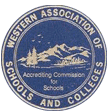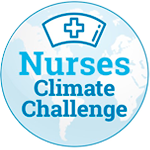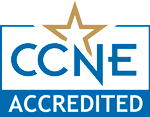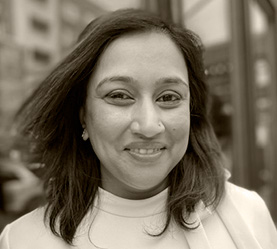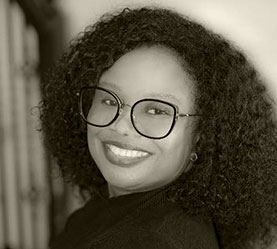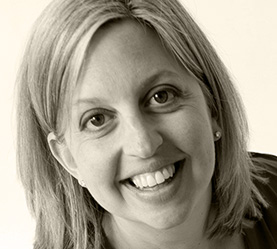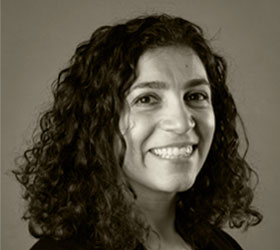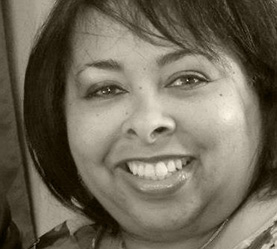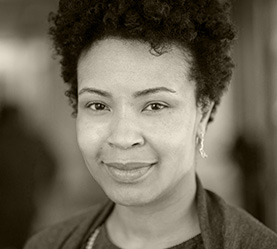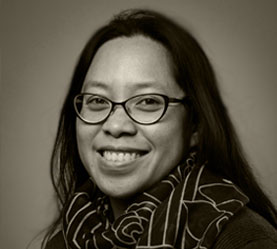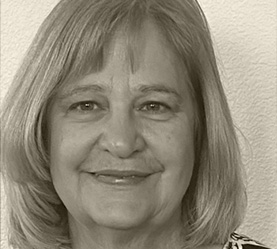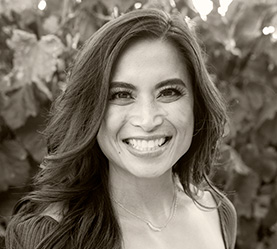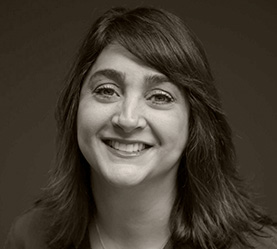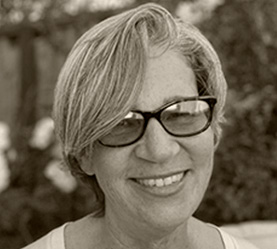Education that Drives Your Career Forward
Cal State East Bay’s Hybrid Master of Science in Nursing program prepares you for advanced practice as health educators, consultants, and administrative leaders. Throughout the program, you’ll broaden your knowledge and skills so that you can serve as an effective leader in various educational and health care settings.
The Hybrid MS in Nursing program is achievable and especially convenient for busy working adults like you. The program format includes online courses designed to give working nurses the greatest access to education with flexibility. Additionally, you will attend a two-day immersion event on campus at the start of each year. The program also serves as a solid foundation, and provides a seamless pathway, if you are interested in pursuing a doctorate in any nursing practice or research-oriented graduate program.
The Masters of Nursing program at California State University, East Bay is accredited by the Commission on Collegiate Nursing Education (http://www.ccneaccreditation.org).
Find out more about the career options that await you. »
Excel in a Rapidly Changing Health Industry
Innovative, creative, advanced nurse leaders envision and chart paths forward in health care delivery, policy, education, and research. As an MSN-prepared nurse, you’ll be ready to practice as an educator, consultant, or administrative leader in a variety of organizational systems.
Occupational Trends
Employment of medical and health services managers is projected to grow 24.5 percent from 2025 to 2035, much faster than the average for all occupations.
—Labor Market Analytics – Lightcast
Employment of healthcare occupations is projected to grow much faster than the average for all occupations from 2023 to 2033, adding about 1.9 million new jobs each year.
—U.S. Bureau of Labor Statistics
California is one of the top paying states for nursing instructors with an annual median wage of $110,157.
—Labor Market Analytics – Lightcast
Become an Effective Contributor
to the Health of Your Communities
Equipped with your MSN, you’ll be able to facilitate change in a variety of spaces, informed by theoretical foundations, competency-based assessment, role development, and goals for future initiatives.
Learn more about our program learning and quality outcomes.
Expand Your Professional Career Opportunities
As a graduate of Cal State East Bay’s Hybrid MS in Nursing program, you’ll be prepared to work in a variety of settings, including:
Clinical, organizational, and academic work settings.
Hospitals (Advanced nurses serve as clinical resources, direct nursing staff development programs, and manage a variety of nursing settings).
Community agencies (Advanced nurses act as consultants to improve client education and oversees health-wellness improvement programs).
Colleges or universities (MSN nurses are valuable clinical mentors and instructors for the next generation of nurses).
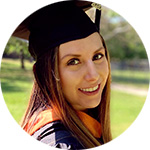
The MSN program has definitely helped me achieve my career goals. My long-term goal has been to teach while still working at the bedside. Once my MSN program was nearly completed, I was offered a position as an adjunct clinical instructor.
Carissa Wilson, MS Nursing Graduate
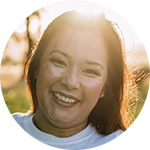
My favorite part about being in the program was the comradery with the other people in my program. We supported each other and cheered each other on. They were a major support system for me when the pressure was on.
The Prestige of a Cal State Degree
with the Convenience of a Hybrid Program
Program Format
All course instruction is delivered via an asynchronous online approach. Additionally, you will attend a two-day in person immersion event in early August every year to build community among students, staff, and faculty, increase familiarity with university resources, hear from alumni as they share about their projects and career pathways, and generally prepare for the upcoming academic year.
Program Curriculum
Cal State East Bay’s Hybrid MS in Nursing program requires the following courses:
| Semester 1 (Fall) | Units |
|---|---|
| NURS 601 Theoretical Perspectives for Advancing Nursing Practice | |
| NURS 602 Introduction to Scientific Research in Practice | |
| NURS 603 Healthcare Systems, Technologies, and Informatics |
| Semester 2 (Spring) | Units |
|---|---|
| NURS 604 Health Equity, Systems of Power, and Population Health | |
| NURS 605 Applying Principles of Patient Safety, Quality, and Highly Reliable Organizations | |
| N610 Curriculum Development, Instructional Strategies, and Assessment (3)* |
| Semester 3 (Fall) | Units |
|---|---|
| N607 Contemporary Issues in Healthcare Economic & Social Policy | |
| N608 Leadership, Influence, and Change in Interprofessional Teams | |
| N620 Resource Management for Cost Effective Healthcare (3)* |
| Semester 4 (Spring) | Units |
|---|---|
| N606 Advanced Concepts in Pathophysiology, Pharmacology, and Health Assessment | |
| N693 Synthesis: Implementing the Advanced Practice Nursing Role (3) |
*Students are invited to take either N610 or N620 (or both)
Who will you be learning from? Meet your professors. »
Featured Faculty
Nursing faculty members in the Cal State East Bay Nursing Department hold clinical practice and organizational management expertise in numerous content areas, including medical-surgical, critical care, pediatric, obstetrics, mental health, gerontology, and community health nursing. Additionally, MSN faculty are actively engaged in research, conference presentations, publications, and leadership in local and national professional nursing organizations.
Additional Faculty:
Josephine Juan, MSN, RN, CCRN, CNEcl
Michelle DeCoux Hampton, RN, PhD, MS
Rachel Torres, DNP, RN, PHNA-BC
Next, learn all about admission requirements and how to apply »
Admission Requirements
The Hybrid MS in Nursing degree program is open to applicants with a:
- Baccalaureate degree in nursing from an accredited US institution
- License or are eligible for licensure as a Registered Nurse in California.
Admission Assessment
Admission will be granted based upon the Admission Committee’s overall assessment of the student’s qualifications and academic/career potential, using the following criteria:
- BS in Nursing degree with cumulative GPA of 3.0 or higher
- Valid RN license, or be eligible for CA RN Licensure.
- One year or more professional nursing experience is preferred.
- Two professional letters of recommendation (on letterhead), indicating the applicant's potential for success in graduate education and a nursing leadership role.
- Goal Statement - A two-page essay indicating the applicant's career interests and goals, their purpose for seeking this advanced degree, and how you are prepared to meet the demands and requirements of this program.
- Interview - To be arranged following receipt of the application.
- All undergraduate/graduate transcripts must be sent to University Admissions.
- STAT 100 Elements of Statistics and Probability, or its equivalent, with a grade of "C" or better prior to starting the MSN program and within the past ten (10) years. Please note: To request a waiver of this recency requirement, please email msnursing@csueastbay.edu. Waivers will be reviewed at the time that applications are reviewed, not beforehand.
How to Apply
The application process requires two steps:
- Submit an online Graduate Admission Application for the MS in Nursing degree program at Cal State East Bay through Cal State Apply.
- Submit an online application to the Nursing Department through NursingCAS (Nursing’s Centralized Application Service) including your two letters of recommendation and a goal statement describing your career interests and preparation to succeed in the graduate program.
An interview will be arranged following the completion of both applications.
Please click on the Application Packet below for detailed instructions on the application process.
Admission Deadlines
| Term | Application Filing Period | Transcripts & Other Docs Due By |
|---|---|---|
| Fall 2026 | 10/1/2025-5/1/2026 | 5/1/2026 |
For international students, please refer to our International Application and Documents Deadlines.
Still have some unanswered questions? Visit the support center for further assistance. »
At Cal State East Bay, we pride ourselves on putting students first, from the moment you inquire until you graduate. We hope you've found answers to your questions in this support center, but if not, please get in touch.
